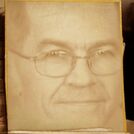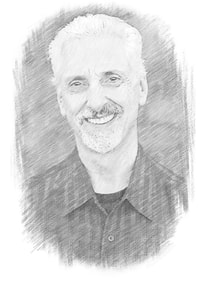Psalm 51
|
Psalm 51:2-4:
2 Wash me throughly from mine iniquity, and cleanse me from my sin. 3 For I acknowledge my transgressions: and my sin is ever before me. 4 Against thee, thee only, have I sinned, and done this evil in thy sight: that thou mightest be justified when thou speakest, and be clear when thou judgest. |
 Jack Wellman Files Jack Wellman Files
Here is where David admits that his sin is not going away and “is ever before” him, meaning that unconfessed sin is sin that is not forgiven. David does eventually confess in his repentant state of mind. He admits that his sins are primarily (but not only) against God and by confessing, he wants to be justified and be seen as blameless in God’s sight. -Jack Wellman
|
 Steve Gallagher
Steve Gallagher
"The first step toward victory over life-dominating habits is understanding that you are in your present circumstances because of the choices that you made for yourself. David took full responsibility when confronted about his sin with Bathsheba. He did not offer the pitiful excuses that can often be heard toady: "I was going through a difficult period in my life." It was the devil that set the whole thing up. God knows that I am a man with natural passions. What does He think as man would do under such circumstances?" 'My wife has been distant with me lately. No wonder I fell into temptation." David knew he was wrong. He made a conscience decision to do it--no one else. When God punished him for his sin, he did not blame God for somehow failing him. He humbled himself before the Lord and accepted the forthcoming punishment for his actions. "
--Steve Gallagher; At The Altar of Sexual Idolatry
--Steve Gallagher; At The Altar of Sexual Idolatry
|
Psalm 51:5:
For I was born a sinner—yes, from the moment my mother conceived me |

Sin is not a learned behavior; it is an inbred disposition. Children get it from their parents, who got from their parents, who got it from their parents—all the way back to Adam and Eve.
We are not sinners because we sin; we sin because we are sinners. And it comes naturally to our children just as it came naturally to us. I never had to say to my two sons, “Now today, I want to teach you how to sin. Let’s start with selfishness. Repeat after me: mine.” I didn’t have to teach them that, because they already knew it, just like I knew, and just like everyone else knows. There is a sinful bent inside each of us. While it’s very important to teach our children things like good manners and to be hard workers, first and foremost we are to point them to Jesus Christ. I know that our tendency as parents is to protect our children and isolate them from this harsh world. And of course, we want to protect them and be a godly influence in their lives. But we also must prepare them to live in the real world. That means we need to understand that these influences will find their way into their lives, no matter where they are. They may be in a Christian school with Christian friends, but they are going to talk to other kids. They will be exposed to things at the mall and on their phones or computers or television screens. We can’t keep them away from these things 24/7. -Greg Laurie |
 Simeon Zahl
Simeon Zahl
Luther described the situation of our own culture very well in his commentary on Psalm 51:
The Gentiles who are without the Word do not properly understand these evils even though they lie right in the middle of them … Thus they cannot properly evaluate any of human nature, because they do not know the source from which these calamities have come upon mankind.
In other words, Luther is saying we need to understand about sin because without it we will not be able fully to understand or describe the reality of the evils and sufferings we see around us. The Gentiles, Luther is saying, are like those who try to make sense of the cancer they are suffering from but don’t make use of the best diagnostic instrument available. Just read most political and social thinkpieces these days. No matter how intelligent or informed the writer, what is glaringly missing so often to a reader like me is a sense of sin. There is a naïve optimism about education or about human intentions or both, and a failure to recognize the basic bias against flourishing, which functions on both individual and societal levels. -Dr. Simeon Zahl ; The Doctrine of Sin; NYC Conference in 2016
The Gentiles who are without the Word do not properly understand these evils even though they lie right in the middle of them … Thus they cannot properly evaluate any of human nature, because they do not know the source from which these calamities have come upon mankind.
In other words, Luther is saying we need to understand about sin because without it we will not be able fully to understand or describe the reality of the evils and sufferings we see around us. The Gentiles, Luther is saying, are like those who try to make sense of the cancer they are suffering from but don’t make use of the best diagnostic instrument available. Just read most political and social thinkpieces these days. No matter how intelligent or informed the writer, what is glaringly missing so often to a reader like me is a sense of sin. There is a naïve optimism about education or about human intentions or both, and a failure to recognize the basic bias against flourishing, which functions on both individual and societal levels. -Dr. Simeon Zahl ; The Doctrine of Sin; NYC Conference in 2016
|
Psalm 51:10:
Create in me a clean heart, O God, And renew a steadfast spirit within me. |

Jesus cited the heart as the source of either good or evil. He explained: "The good person out of the good treasure of his heart produces good, and the evil person out of his evil treasure produces evil, for out of the abundance of the heart his mouth speaks" (Luke 6:45). Jesus also said that "everyone who looks at a woman with lustful intent has already committed adultery with her in his heart" (Matthew 5:28). David, therefore, had committed adultery with Bathsheba in his heart before the physical act of adultery took place. He needed a new heart. But he also asked the Lord to renew a right spirit within him (Psalm 51:10). He wanted the kind of spirit that would obey the Lord at all times. -Bible Ref
|

King David knew that to be continually influenced by God, he had to be in the presence of God.
How do we stay in the presence of God? First, God speaks to us personally through the reading of the bible. Second, We speak to God through prayer. Third, Only obedience to God’s Word results in blessings to our lives. God puts the Holy Spirit inside of you when you believe and put your love and trust in Jesus Christ. The Holy Spirit prompts you in accordance with the Word of God. This is why David pleaded: “and take not thy holy spirit from me.” Then, David says “Restore unto me the joy of thy salvation; and uphold me with thy free spirit”. You are freed by knowledge of scripture to know the right paths to take. You have liberty in Christ Jesus. You are free to receive His love and purpose and relationship. You are no longer a slave to sin and its’ negative consequences. You are free. God calls us sons and daughters. In Christ you are a child of God. You are a child of the King. --Dr. Roger Holl; Sterling Grace Community Church |

It’s a common image in the Bible. In Ezekiel 36:25, God says to Judah, “I will cleanse you from all your filthiness and from all your idols.”
Ananias said to Saul in Acts 22:16, “And now why are you waiting? Arise and be baptized, and wash away your sins, calling on the name of the Lord.” “But if we walk in the light as He is in the light, we have fellowship with one another, and the blood of Jesus Christ His Son cleanses us from all sin.” (I John 1:7) There is a need in our lives for cleansing. David doesn’t say, “Change the way I behave.” He says, “Change my heart.” It’s not that how we behave is unimportant. It’s just that we’ve got to start at the heart. We can go through all the right motions without our heart being right, but if the heart is right, everything else will fall into place. David doesn’t offer to do it himself. In fact, he knows that he can’t. And when David says, “Create in me a clean heart, O God”, he goes back to the language of the creation itself in the first chapters of Genesis. The word "create" used here in Psalm 51 is the very same Hebrew word used in Genesis. In fact, it is a word used only of God in the Bible. It means to create something out of nothing. Human beings can fashion, arrange, or remodel things. But human beings can never create anything in the true sense of the word. We can’t bring into being something that never existed before. “The sacrifices of God are a broken spirit, a broken and a contrite heart -- These, O God, you will not despise.” (Psalm 51:17). David truly was contrite. To be contrite means to be aware of our spiritual condition. It means that our inner self is crushed with a sense of its guilt. It does not mean merely feeling bad or remorseful about sin. It means that we have a genuine and deep sorrow for our rebellion against God and a determined desire to do differently. -Sermon Central |

Why did David ask for a pure heart? Psalm 24:3-4 asks, “Who shall ascend the hill of the Lord? And who shall stand in his holy place? He who has clean hands and a pure heart, who does not lift up his soul to what is false and does not swear deceitfully.”
He knew that only the pure could approach God. “The heart is utterly crucial to Jesus. What we are in the deep, private recesses of our lives is what he cares about most,” wrote John Piper.
Leviticus 16 describes the ritual of cleansing and sacrifice the high priest was required to complete before approaching the Mercy Seat in the temple. The high priest did his best, but even this rigorous process was not enough to make even the best of men 100% clean.
John Piper explains, “We know that what keeps us away from God is not dirty hands or soiled clothes or distance from an altar or a priest. What keeps us from God is real sin echoing in a condemning conscience.” We cannot obtain a totally pure heart. On the other hand, by the grace of God we can desire it; can come to God seeking his new mercies every day (Lamentations 3:22-23). “The Lord is not slow to fulfill his promise as some count slowness, but is patient toward you, not wishing that any should perish, but that all should reach repentance” (2 Peter 3:9).
Not perfection — repentance. The Lord can change anyone, but Christians must turn to God and ask for a change to take place. “You will seek me and find me, when you seek me with all your heart” (Jeremiah 29:13).
We can approach him without pure hearts desirous of purity because the Lord views believers through the atoning blood of Jesus Christ; his pure sacrifice. “He himself bore our sins in his body on the tree, that we might die to sin and live to righteousness. By his wounds you have been healed” (1 Peter 2:24). -Candace Lucey; Christianity.com
He knew that only the pure could approach God. “The heart is utterly crucial to Jesus. What we are in the deep, private recesses of our lives is what he cares about most,” wrote John Piper.
Leviticus 16 describes the ritual of cleansing and sacrifice the high priest was required to complete before approaching the Mercy Seat in the temple. The high priest did his best, but even this rigorous process was not enough to make even the best of men 100% clean.
John Piper explains, “We know that what keeps us away from God is not dirty hands or soiled clothes or distance from an altar or a priest. What keeps us from God is real sin echoing in a condemning conscience.” We cannot obtain a totally pure heart. On the other hand, by the grace of God we can desire it; can come to God seeking his new mercies every day (Lamentations 3:22-23). “The Lord is not slow to fulfill his promise as some count slowness, but is patient toward you, not wishing that any should perish, but that all should reach repentance” (2 Peter 3:9).
Not perfection — repentance. The Lord can change anyone, but Christians must turn to God and ask for a change to take place. “You will seek me and find me, when you seek me with all your heart” (Jeremiah 29:13).
We can approach him without pure hearts desirous of purity because the Lord views believers through the atoning blood of Jesus Christ; his pure sacrifice. “He himself bore our sins in his body on the tree, that we might die to sin and live to righteousness. By his wounds you have been healed” (1 Peter 2:24). -Candace Lucey; Christianity.com

An anonymous seventeenth-century nun had these words to say about growing older and keeping a sweet, right spirit toward others. “Lord, keep me from getting talkative, from thinking that I must say something on every subject and on every occasion. Release me from craving to straighten out everybody’s affairs.
“Make me thoughtful, but not moody; helpful, but not bossy. Keep my mind from the recital of endless details — give me wings to come to the point. “I ask for grace enough to listen to the tales of others’ pains. Seal my lips on my own aches and pains, however, help me to endure them with patience. “I dare not ask for improved memory, but for a growing humility and a lessening cocksureness when my memory seems to clash with the memories of others. Teach me the glorious lesson that occasionally it is possible that I may be mistaken. “Keep me reasonably sweet. I do not want to be a saint, but a sour old person is one of the crowning works of the devil. Give me the ability to see the good things in unexpected places, and talents in unexpected people. And give me, O Lord, the grace to tell them so.” -Rev. Tim McConnell; Long's Chapel United Methodist Church |

King David knew that to be continually influenced by God, he had to be in the presence of God.
How do we stay in the presence of God? First, God speaks to us personally through the reading of the bible. Second, We speak to God through prayer. Third, Only obedience to God’s Word results in blessings to our lives. God puts the Holy Spirit inside of you when you believe and put your love and trust in Jesus Christ. The Holy Spirit prompts you in accordance with the Word of God. This is why David pleaded: “and take not thy holy spirit from me.” Then, David says “Restore unto me the joy of thy salvation; and uphold me with thy free spirit”. You are freed by knowledge of scripture to know the right paths to take. You have liberty in Christ Jesus. You are free to receive His love and purpose and relationship. You are no longer a slave to sin and its’ negative consequences. You are free. God calls us sons and daughters. In Christ you are a child of God. You are a child of the King. Being in faith is also about sharing our faith with others in relationship. David tells us: “Then will I teach transgressors thy ways; and sinners shall be converted unto thee.” -Roger Hole; Sterling Grace Community Church |

David also prayed for a right spirit to be renewed in him – this is an upright spirit, a steadfast, constant, or firm spirit. Even our spirit is affected by our sin, and it is caused not to be firm or upright.
We need the Lord to strengthen us into our inner man so that our spirit may be immovable, unshakable, standing constantly as something firm and steady. We even need to repent for having a spirit that is not so firm, not so steady, and that’s the reason we are able to be tempted and fail. -agodman
We need the Lord to strengthen us into our inner man so that our spirit may be immovable, unshakable, standing constantly as something firm and steady. We even need to repent for having a spirit that is not so firm, not so steady, and that’s the reason we are able to be tempted and fail. -agodman
|
Psalm 51:11:
Cast me not away from thy presence; and take not thy holy spirit from me, |

David's lament and genuine remorse over his sin is well known to most bible readers. David had committed two sins for which there was no remedy under the law. Perhaps no one has ever explained that better than Peter Ruckman. He was the first I ever heard explain Psalm 40:6 in the light of David's plight. Sacrifice and offering thou didst not desire; mine ears hast thou opened: burnt offering and sin offering hast thou not required.
Why didn't the Lord require burnt offering and sacrifice for David's two terrible sins? Because under the law the only remedy for either was death. Not only did his two sins of adultery and murder require death, but David identified one other aspect of his crime that called for death. When he pronounced judgment upon the fictional thief in Nathan's story, he judged the thief worthy of death because he had no pity. And David's anger was greatly kindled against the man; and he said to Nathan, As the LORD liveth, the man that hath done this thing shall surely die: And he shall restore the lamb fourfold, because he did this thing, and because he had no pity, 2nd Samuel 12:5,6. As James the Apostle tells us; For he shall have judgment without mercy, that hath shewed no mercy; and mercy rejoiceth against judgment, James 2:13. There is no room in God's kingdom for people who have no mercy. There is no room in a family, a church or a nation for people who have no mercy and cannot show pity. David realized this and also realized that there was no sacrifice or offering that he could ever bring to God to alleviate his sin. He cried out, take not thy holy spirit from me. -Dr John M. Asquith |
|
Psalm 51:12:
Restore to me the joy of your salvation, and uphold me with a willing spirit.” |

Those years when I felt I could never be forgiven for the things that I had done, left me craving the joy of God’s salvation. I didn’t feel like I could hold myself up anymore, and became dependent on my Lord for my joy. He upholds me and He strengthens me. I know now that I am forgiven, not because of anything I have done, but because of His love for me, in sending Jesus Christ to die for my sins. He restored my soul. He renewed a right spirit within me and now I am being equipped to do what the following verse in scripture says, “Then I will teach transgressors your ways, and sinners will return to you. Deliver me from bloodguiltiness, O God, O God of my salvation, and my tongue will sing aloud of your righteousness. O Lord, open my lips, and my mouth will declare your praise.” -God Is
|

The word “restore” implies that it is something that King David once had and needed to recover. To restore can mean “to bring back into a normal or former condition.” He doesn’t ask God to return his salvation, he hadn’t lost it, but he asks for joy. The believer who has lost his joy is truly in a sad state. Here are some thoughts concerning the restoration of joy.
“Restore unto me the joy”… no one ever recovers lost joy until there is a request for its return. Note several things about this request. First, it is an earnest request; he meant business with God. Second, it is an expectant request; he would never asked God to restore his joy if he did not believe that God would do it. Third, it is an expressive request. David knew his joy was gone. He did not deny the reality of his condition. It expresses what he knew about his inner life. He had lost his fellowship and joy of his relationship with God. -Rev. J. Patrick Street; Redeemer Church
“Restore unto me the joy”… no one ever recovers lost joy until there is a request for its return. Note several things about this request. First, it is an earnest request; he meant business with God. Second, it is an expectant request; he would never asked God to restore his joy if he did not believe that God would do it. Third, it is an expressive request. David knew his joy was gone. He did not deny the reality of his condition. It expresses what he knew about his inner life. He had lost his fellowship and joy of his relationship with God. -Rev. J. Patrick Street; Redeemer Church





